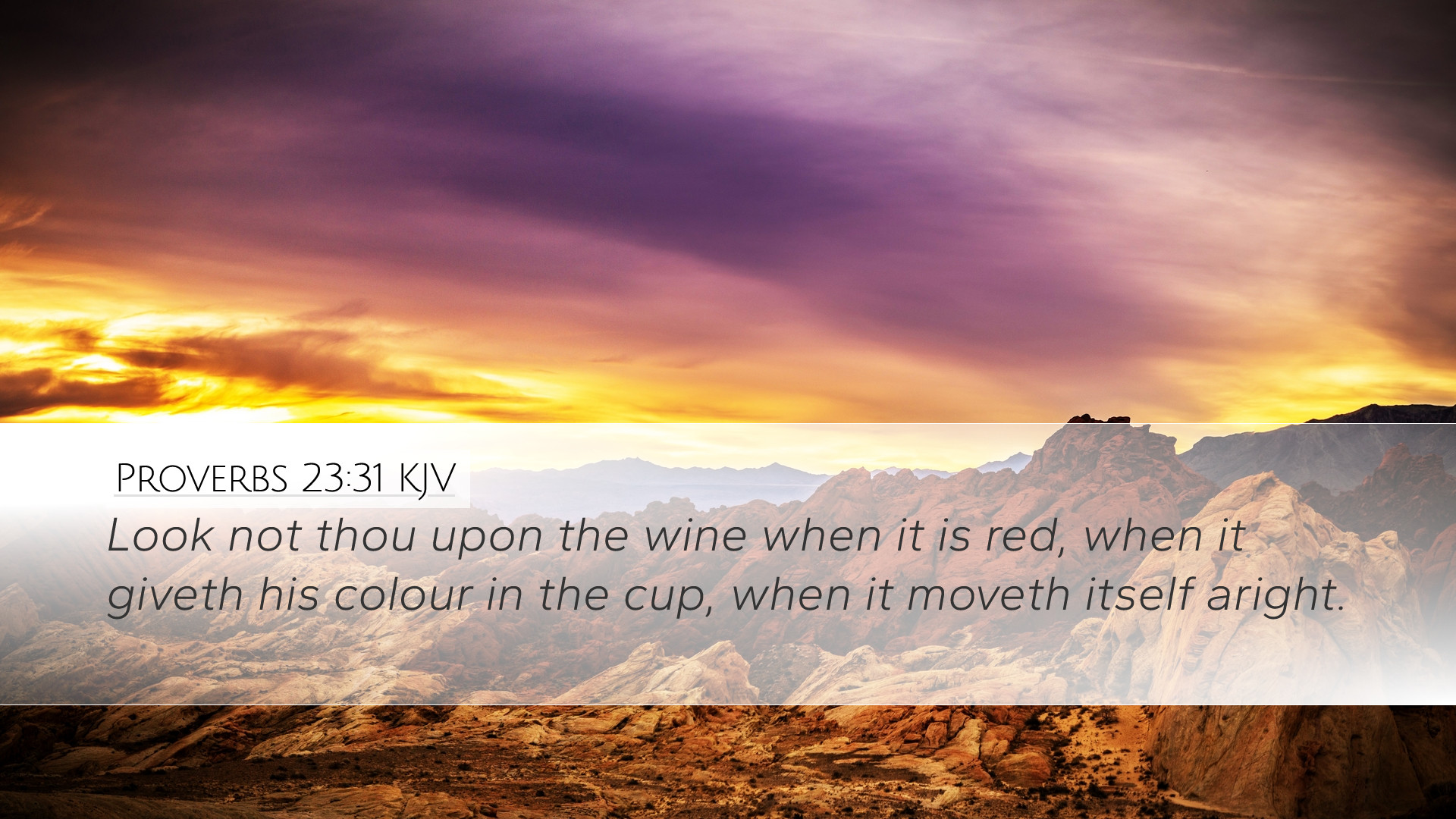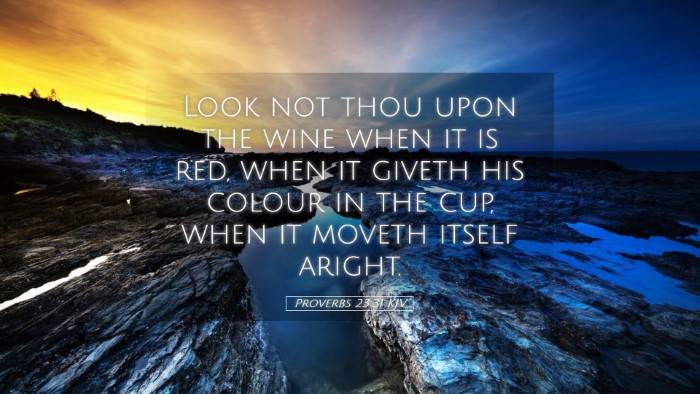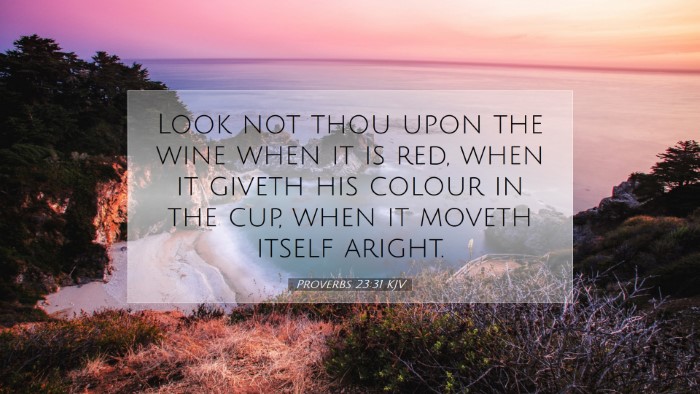Commentary on Proverbs 23:31
Verse: "Look not thou upon the wine when it is red, when it giveth his colour in the cup, when it moveth itself aright."
Overview
This verse from the Book of Proverbs offers a poignant warning about the dangers associated with alcohol, specifically wine. The implications of this verse extend beyond mere abstention from drinking; they delve deeper into the psychological and spiritual consequences of indulging in intoxicating substances.
Exegesis and Analysis
Matthew Henry, in his classic commentary, emphasizes that the warning is not merely about the outward appearance of wine but the deceptive allure it presents. He observes that wine may appear inviting but can lead to destructive consequences:
- The Allure of Wine: Henry notes that wine is described in its most attractive state, which points to how temptation can often be enticing.
- The Nature of Temptation: The phrase "when it moveth itself aright" suggests the intoxicating effects of wine that can cloud judgment.
Henry further explores the broader implications of this verse, advising against engaging with such temptations that seem enticing at first but ultimately lead to folly and ruin.
Warnings Against Intoxication
Albert Barnes provides an insightful reflection on the dangers of becoming enamored with wine. He articulates that the physical state of wine does not reflect its spiritual consequences:
- Physical vs. Spiritual Effects: Barnes points out that while wine may be pleasing to the eye, it often leads to moral and ethical irresponsibility.
- Consequences of Overindulgence: He elaborates on how focusing too much on earthly pleasures can detract from one's spiritual life and devotion to God.
Through this lens, Barnes encourages readers to maintain vigilance and discernment, reminding believers of the eternal versus the temporal when it comes to indulgences.
The Broader Moral Teachings
Adam Clarke expands on the moral implications of this verse, placing it within the context of wisdom literature. He suggests that the exhortation to avoid looking at wine reflects a larger principle of avoiding temptation in all forms:
- Moral Integrity: Clarke stresses that maintaining moral integrity is paramount for believers and that avoiding temptation is a proactive measure.
- Self-Control: He discusses the importance of self-discipline in spiritual life, highlighting that looking upon something is often the first step towards being ensnared by it.
This perspective encourages a holistic view of day-to-day decisions and behaviors in line with one’s faith commitments.
Theological Implications
When considering the theological implications of Proverbs 23:31, it becomes clear that this verse serves as a cautionary tale not only for personal conduct but also for communal understanding:
- Community Responsibility: The potential dangers of wine consumption can mirror broader societal issues related to addiction and moral decay.
- Call to Wisdom: Each commentary revisits the core principle of seeking wisdom—facing temptations head-on and instructing others to do the same.
Ultimately, the teachings of this verse advocates for a life that seeks righteousness and wisdom over indulgence and folly.
Practical Applications for Believers
Based on the insights drawn from these historical commentaries, the following practical applications emerge:
- Awareness of Temptation: Believers should be vigilant about the things that can lead them into temptation, remaining alert to the initial allure that may lead to deeper issues.
- Fostering a Culture of Accountability: Communities of faith can flourish when they support one another in maintaining moral discipline.
- Encouragement Towards Alternative Joy: Rather than seeking joy in physical pleasures, believers can be encouraged to find fulfillment in spiritual growth and community.
Engaging with this verse invites both personal reflection and communal dialogue, establishing the importance of wisdom in everyday choices.
Conclusion
Proverbs 23:31 serves as a profound reminder of the complexities of temptation and the importance of wisdom in navigating life's choices. Through the assemblies of commentaries from Matthew Henry, Albert Barnes, and Adam Clarke, we are equipped with a greater understanding of the consequences of indulgence. The engagement with this text unveils not only the need for personal vigilance but also the collective responsibility that believers share in the pursuit of a godly life.


